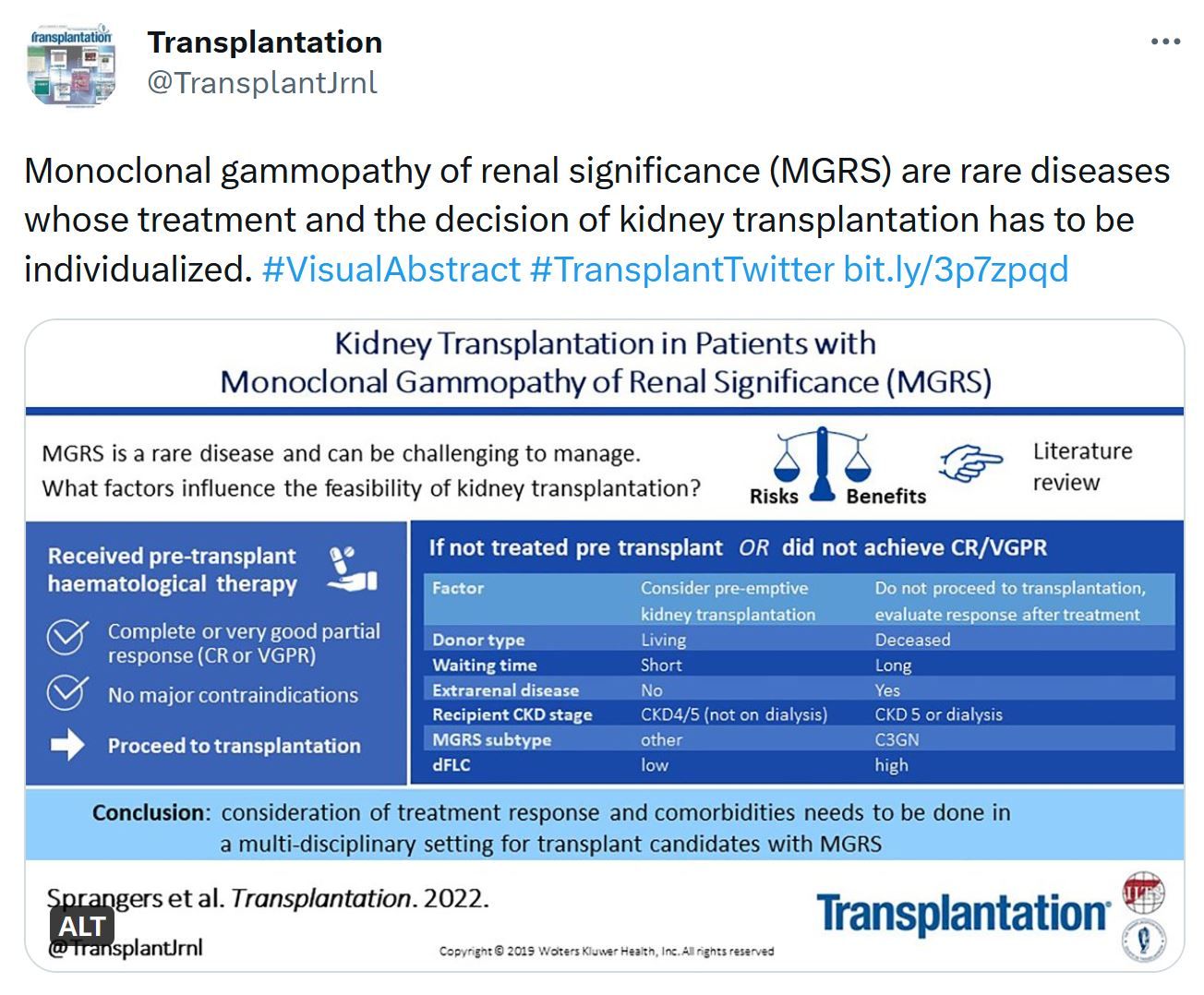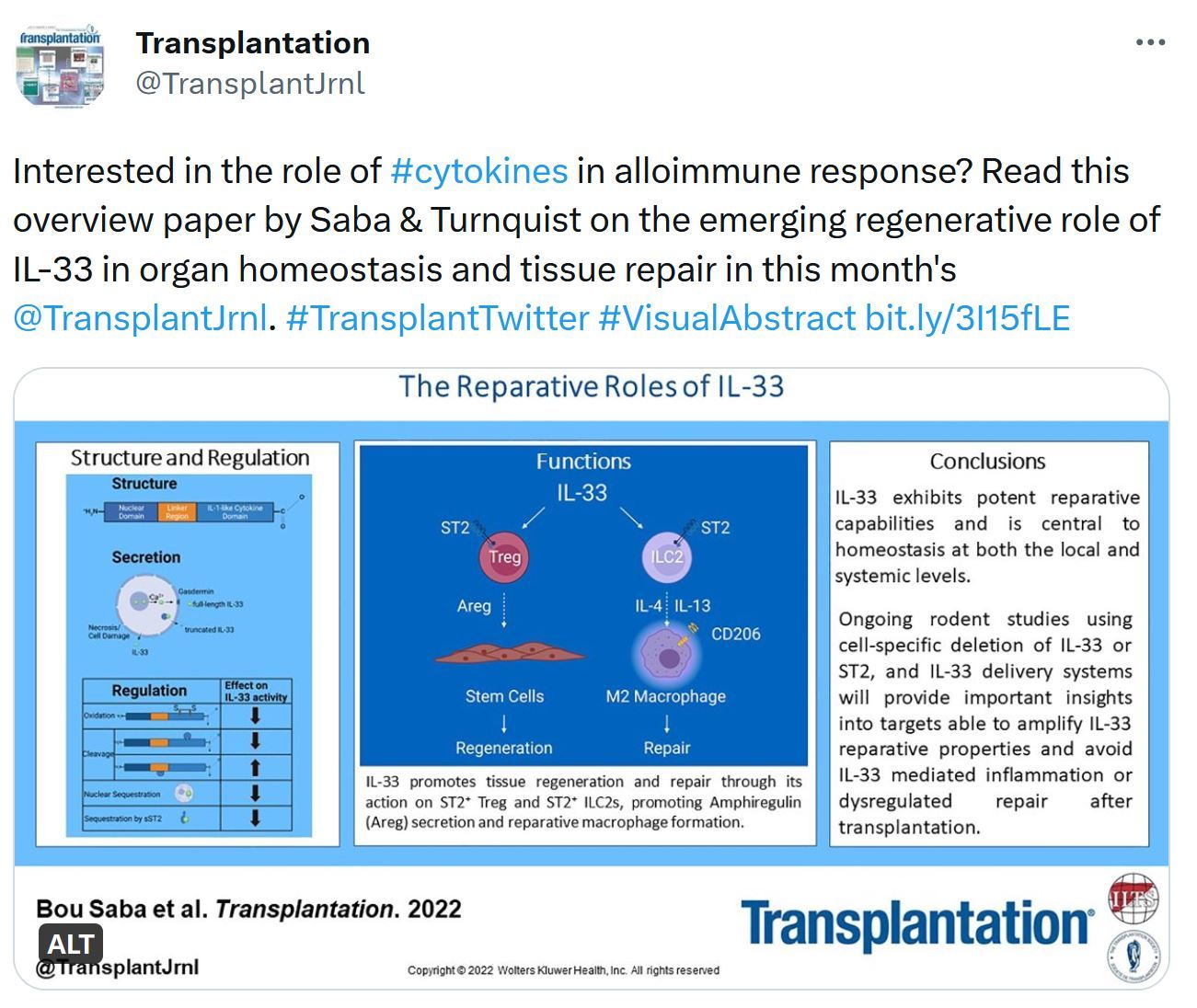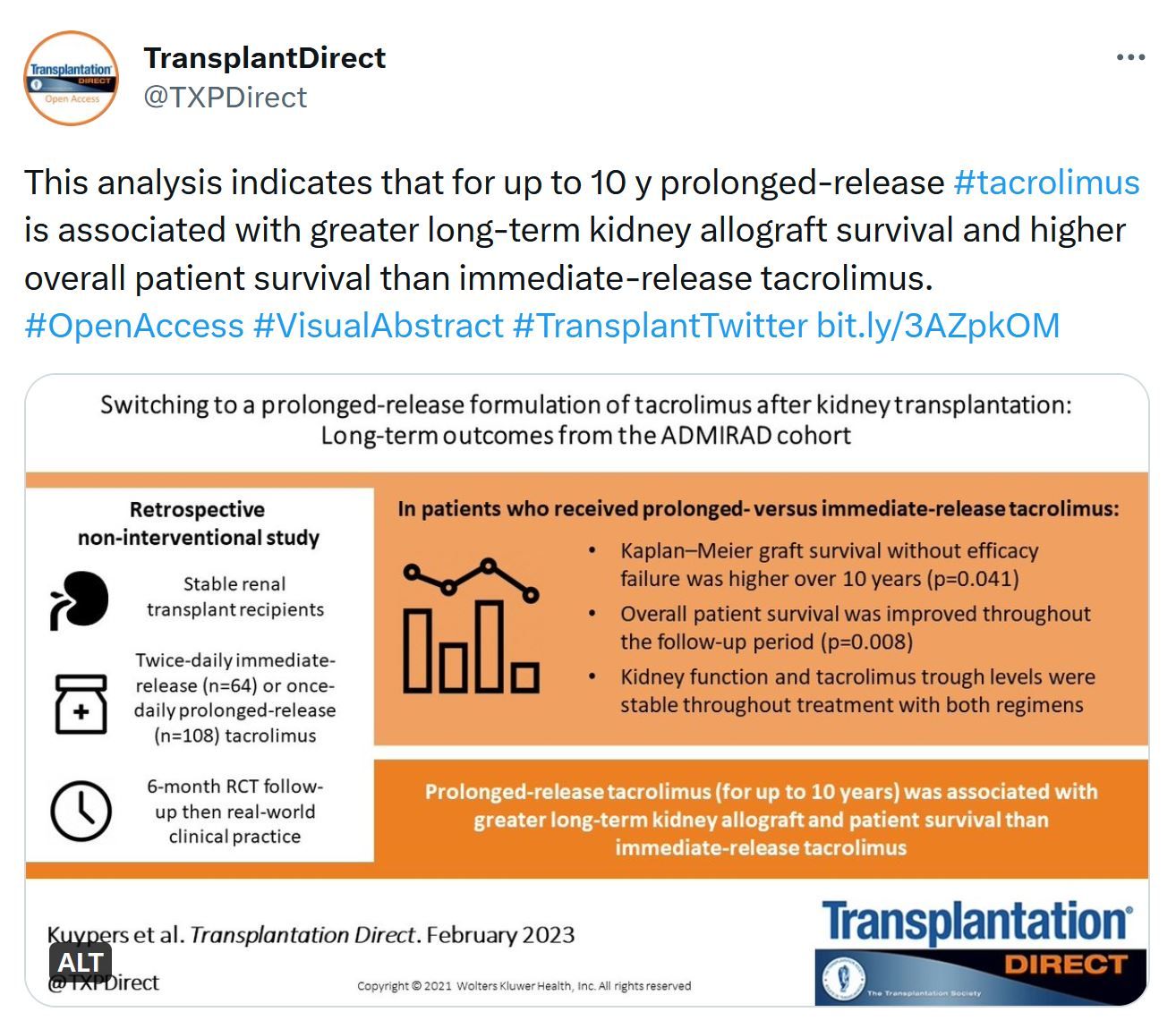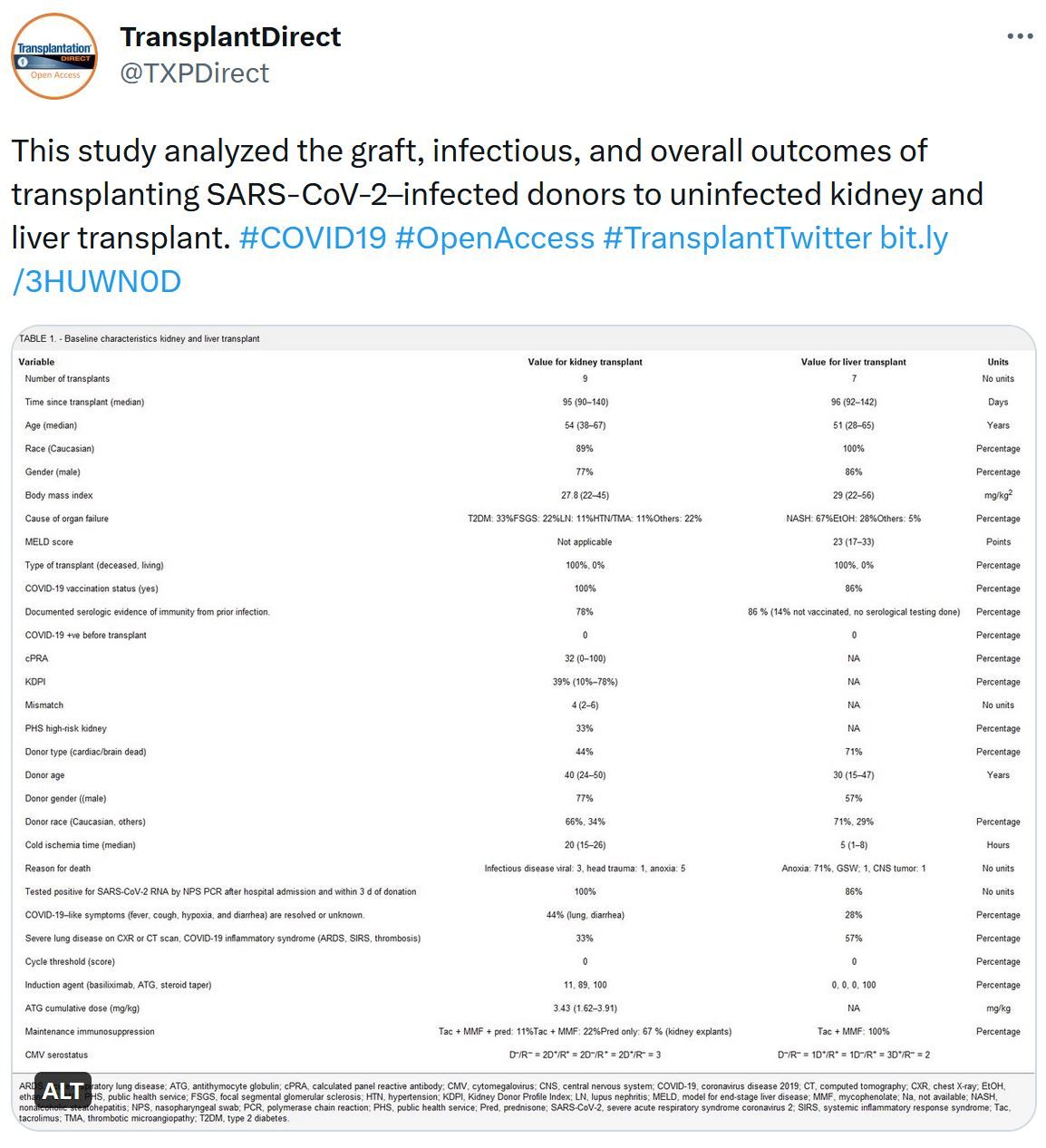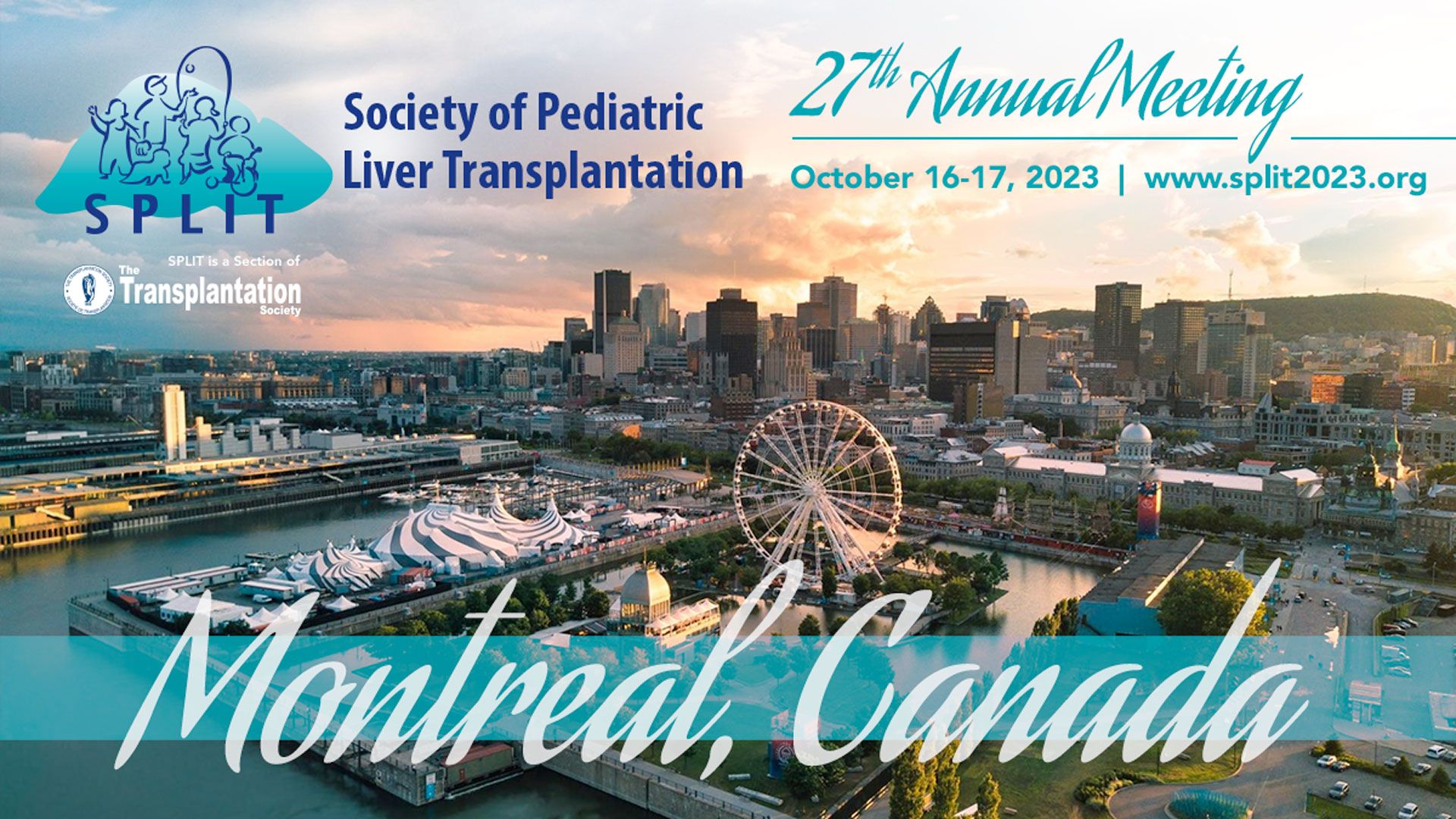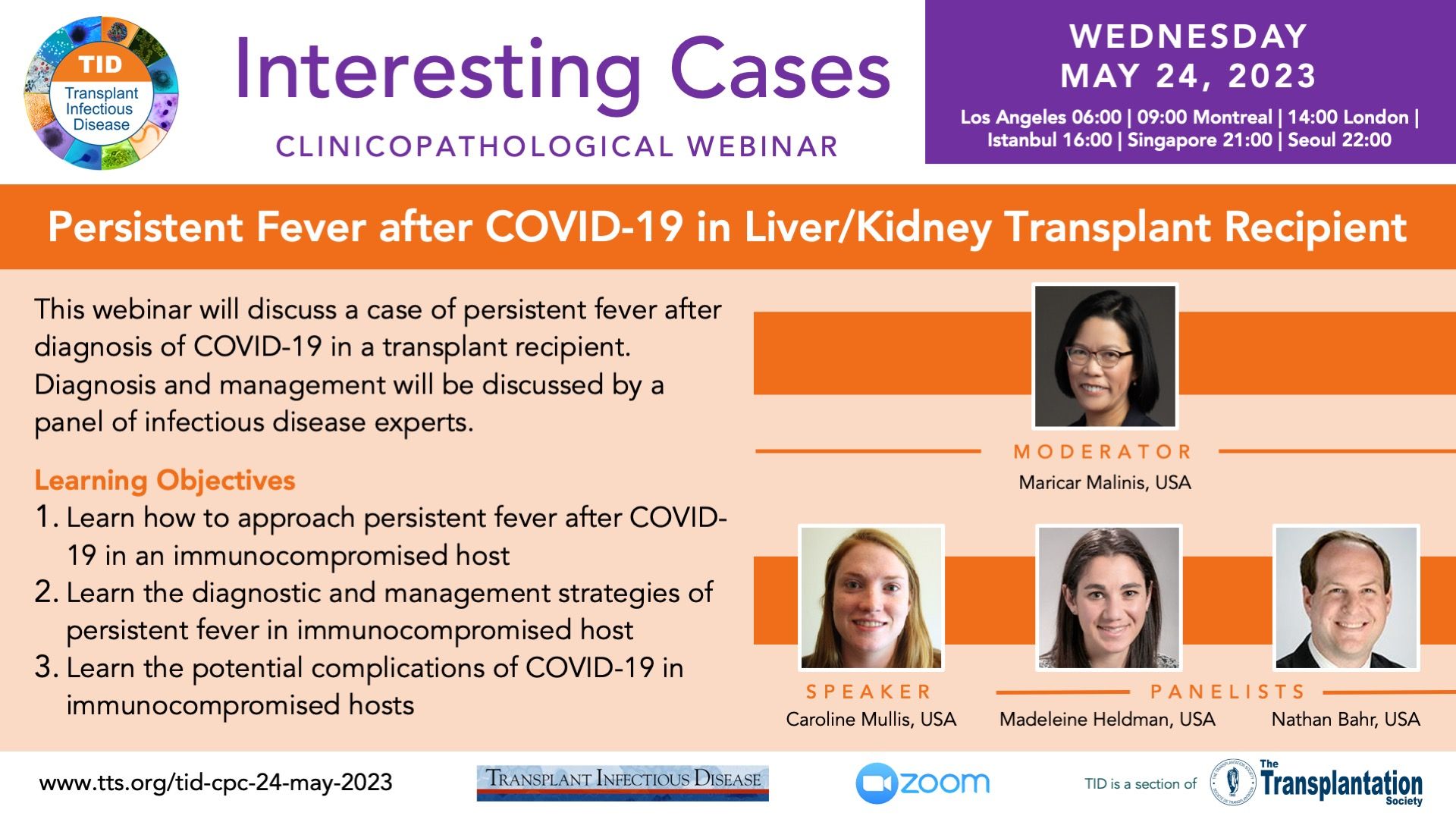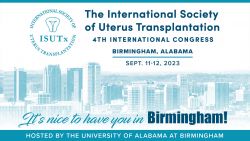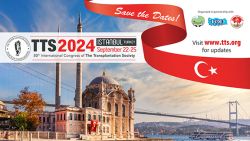
Transplantation Direct - June 2023 Issue
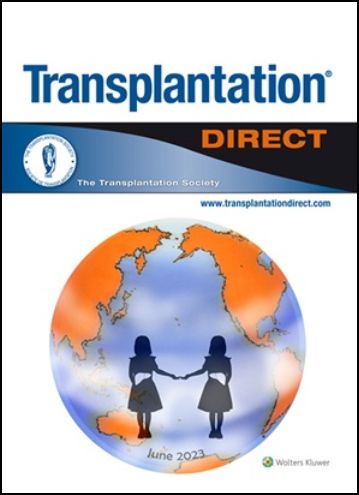
Just Released - Transplantation Direct - June 2023 Issue
The Transplantation Direct June issue is now available online. Organ donation continues to be a hot topic, with a report from a large OPO regarding a systematic approach to decrease donor kidney non-use. Also in kidney transplantation, studies are presented on the highly predictive value of walking ability and brain natriuretic peptide for waitlist removal and serum creatinine (versus biopsy) for predicting antibody-mediated rejection, as well as studies on using antibodies to mask MHC I antigens during ex vivo organ perfusion (pig) in alloimmunized recipients, and key differences regarding presentation and workup of cases of lithiasis versus encrusted pyelitis. In liver transplantation, we have articles on markers distinguishing primary nonfunction from early graft dysfunction, characterization of outcomes and complications with steroid use, and experiences with pure laparoscopic donor right hepatectomy from an experienced Southeast Asian Center. For our lung transplant readership, the use of tixagevimab-cilgavimab in COVID-19+ transplant recipients with breakthrough infections is evaluated, relative versus absolute changes in donor-derived cell-free DNA is compared for diagnosis of acute allograft dysfunction, and a case of postmortem vascular Ehlers Danlos syndrome is reported. In islet transplantation, there is an analysis of cognitive outcomes in recipients. Experimentally, we have an article on the potential role of extracellular vesicle-associated GARP/TGF:LAP production as a mechanism immune tolerance. For further details on all these studies, please visit the Transplantation Direct open-access website!
Table of Contents
Basic Science
Kidney Transplantation
- Walking Ability and Brain Natriuretic Peptide Are Highly Predictive of Kidney Transplant Waiting List Removal
- The Trend of Serum Creatinine Does Not Predict Follow-Up Biopsy Findings Among Kidney Transplant Recipients With Antibody-Mediated Rejection
- MHC Class I Masking to Prevent AMR in a Porcine Kidney Transplantation Model in Alloimmunized Recipients
- Complex, Crusty Calculi: A Case Study Report of Renal Transplant Lithiasis and Encrustation
Liver Transplantation
- Low C-reactive Protein and Urea Distinguish Primary Nonfunction From Early Allograft Dysfunction Within 48 Hours of Liver Transplantation
- Steroid Avoidance After Adult Living Donor Liver Transplant: A Cohort Analysis
- Safely Implementing a Program of Pure Laparoscopic Donor Right Hepatectomy: The Experience From a Southeast Asian Center
Lung Transplantation
- Pre-exposure Prophylaxis with Tixagevimab-cilgavimab did not Reduce Severity of COVID-19 in Lung Transplant Recipients with Breakthrough Infection
- Postmortem Identification of Vascular Ehlers-Danlos Syndrome in a Lung Transplant Recipient
- Relative Change in Donor-Derived Cell-free DNA is Superior to Absolute Values for Diagnosis of Acute Lung Allograft Dysfunction
Pancreas and Islet Transplantation
Organ Donation and Procurement
Transplantation Direct - In Conversation with Matthew Weiss
Last month we published a very special series of articles resulting from an international organ and tissue donation and transplantation legislation and policies forum. We recently caught up with Matthew Weiss to speak about the 2021 Forum and the publications that came out of this important collaboration.
TTS is Exhibiting at ATC 2023
Transplantation Updates

Transplantation - Highlighted Tweets
Transplantation Direct - Highlighted Tweets
SPLIT 2023
Contact
Address
The Transplantation Society
International Headquarters
740 Notre-Dame Ouest
Suite 1245
Montréal, QC, H3C 3X6
Canada
Используйте Вавада казино для игры с бонусом — активируйте промокод и начните выигрывать уже сегодня!


